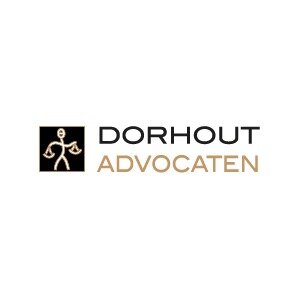Best Bankruptcy Lawyers in Groningen
Share your needs with us, get contacted by law firms.
Free. Takes 2 min.
List of the best lawyers in Groningen, Netherlands
About Bankruptcy Law in Groningen, Netherlands
Bankruptcy law in the Netherlands, including the city of Groningen, falls under the Dutch Bankruptcy Act (Faillissementswet). This legal framework governs situations where individuals or businesses are unable to meet their financial obligations. The law facilitates the fair distribution of a debtor's assets among creditors and, where possible, helps individuals or businesses reorganize their debts to regain solvency. Groningen’s legal system follows the national regulations, ensuring the process is handled through the court, which appoints a trustee to oversee the proceedings.
Why You May Need a Lawyer
Legal representation in bankruptcy cases can be crucial for several reasons. A lawyer can provide expert advice on whether declaring bankruptcy is the best option, considering alternatives like negotiation with creditors or debt restructuring. Lawyers help navigate complex legal processes, represent clients in court, handle communications with trustees and creditors, and ensure compliance with all procedural requirements. In situations where fraud allegations arise, a lawyer's expertise is essential to protect an individual's or company's rights.
Local Laws Overview
Under local laws, the bankruptcy process in Groningen starts with a petition filed by the debtor or creditors in district court. The court reviews this petition and, if bankruptcy is declared, appoints a trustee (curator) to manage the bankrupt entity's estate. The trustee investigates the financial affairs of the debtor, liquidates assets to pay off debts, and reports back to the court. The local enforcement of the Dutch Bankruptcy Act includes specific provisions for personal bankruptcy (WSNP) aimed at individuals, allowing them a path to debt settlement and eventual financial rehabilitation.
Frequently Asked Questions
What is the difference between personal and business bankruptcy?
Personal bankruptcy primarily involves individuals and falls under the Dutch Debt Restructuring for Natural Persons (WSNP), while business bankruptcy typically involves corporations or businesses, managed under the broader Bankruptcy Act.
How long does the bankruptcy process take in Groningen?
The duration of bankruptcy proceedings varies depending on the complexity and type of bankruptcy. Personal bankruptcy under the WSNP can last up to three years, while business bankruptcies can take months to several years to resolve.
Can I keep any assets during bankruptcy?
Certain assets categorized as 'exempt assets' can be retained during bankruptcy. These may include essential household goods and tools required for work. Specific exemptions depend on individual circumstances, and legal advice is recommended for accurate assessment.
What happens to my debts if I declare bankruptcy?
During bankruptcy, your debts will be managed by a trustee who will attempt to satisfy creditors by liquidating your non-exempt assets. Any remaining debts after asset liquidation may be discharged, depending on the case circumstances.
Will bankruptcy affect my credit score?
Yes, declaring bankruptcy will significantly impact your credit score and will remain on your credit record for several years, affecting your ability to obtain future credit.
How can I stop creditors from harassing me?
Once bankruptcy is declared, a legal stay of proceedings is typically imposed, preventing creditors from contacting you directly. All communications should go through the appointed trustee.
Do I need to attend court hearings?
You may need to attend certain hearings related to your bankruptcy proceedings. Your lawyer can guide you on when attendance is essential and represent you in most legal dealings.
Can I run a business during personal bankruptcy?
While personal bankruptcy places restrictions on financial activities, it is possible to continue running a business in some cases. This situation requires careful evaluation and legal consultation.
Is it possible to annul a bankruptcy declaration?
Yes, if circumstances change, such as settlement with creditors or securing sufficient funds, an individual can request the annulment of bankruptcy through the courts.
How can I apply for debt counseling or restructuring?
Debt counseling and restructuring can be sought through municipal debt relief services or private organizations specializing in financial advice. Legal guidance can also facilitate the initiation of these processes.
Additional Resources
For more information on bankruptcy laws and support in Groningen, individuals can reach out to the local Chamber of Commerce (Kamer van Koophandel), legal aid centers, and financial advisory services. The district court in Groningen is also a crucial point of contact for bankruptcy filings and inquiries.
Next Steps
If you require legal assistance with bankruptcy in Groningen, it is advisable to consult a lawyer specializing in bankruptcy law. Start by scheduling an initial consultation to discuss your situation. Collect all relevant financial documents and records to provide your lawyer with a comprehensive view of your financial status. Professional legal support will guide you through the intricacies of the legal system and help you pursue the most favorable resolution.
Lawzana helps you find the best lawyers and law firms in Groningen through a curated and pre-screened list of qualified legal professionals. Our platform offers rankings and detailed profiles of attorneys and law firms, allowing you to compare based on practice areas, including Bankruptcy, experience, and client feedback.
Each profile includes a description of the firm's areas of practice, client reviews, team members and partners, year of establishment, spoken languages, office locations, contact information, social media presence, and any published articles or resources. Most firms on our platform speak English and are experienced in both local and international legal matters.
Get a quote from top-rated law firms in Groningen, Netherlands — quickly, securely, and without unnecessary hassle.
Disclaimer:
The information provided on this page is for general informational purposes only and does not constitute legal advice. While we strive to ensure the accuracy and relevance of the content, legal information may change over time, and interpretations of the law can vary. You should always consult with a qualified legal professional for advice specific to your situation.
We disclaim all liability for actions taken or not taken based on the content of this page. If you believe any information is incorrect or outdated, please contact us, and we will review and update it where appropriate.










